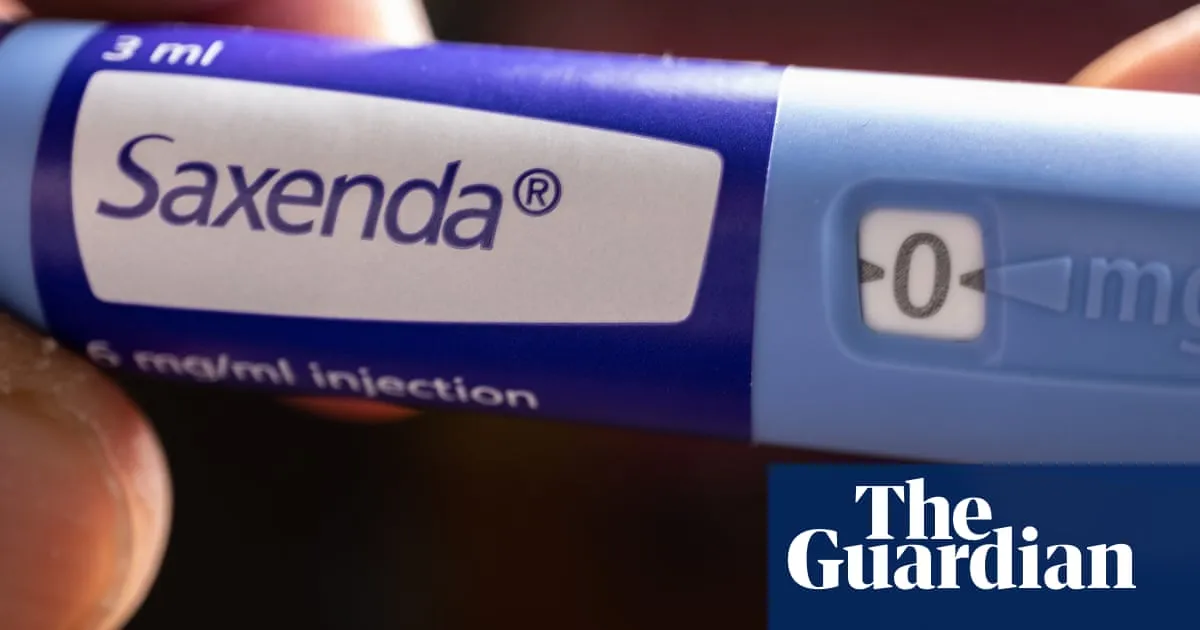
Weight-loss jabs could significantly lower the risk of obesity-related cancers, according to a groundbreaking study that has captured the attention of health experts worldwide. This research, deemed “transformational” by cancer specialists, suggests that we might be entering a “whole new era of preventive cancer medicine.” With obesity linked to 13 different types of cancer, these findings highlight the importance of effective weight management in cancer prevention.
Researchers from Israel conducted an extensive study involving 6,000 adults with no previous cancer diagnoses. Participants either underwent bariatric surgery or received glucagon-like peptide-1 receptor agonists (GLP-1RAs), such as liraglutide (Saxenda), exenatide (Byetta), or dulaglutide (Trulicity). These medications work by mimicking the GLP-1 hormone, which helps regulate blood sugar levels and promotes a feeling of fullness.
While those who opted for bariatric surgery lost approximately double the weight compared to patients on weight-loss medications, the study, presented at the European Congress on Obesity in Malaga, Spain, and published in The Lancet’s eClinicalMedicine, showed that the reduction in cancer risk was remarkably similar between the two groups. The findings indicated that bariatric surgery reduced cancer risk by 30-42%, prompting researchers to conclude that weight-loss drugs may offer a more effective strategy for preventing obesity-related cancers.
Co-lead author Professor Dror Dicker from Hasharon Hospital, Rabin Medical Center in Petah Tikva, Israel, stated, “The protective effects of GLP-1RAs against obesity-related cancers likely arise from multiple mechanisms, including reducing inflammation.” He also noted that newer, more potent GLP-1RAs could offer even greater benefits in reducing cancer risk, although further research is necessary to ensure these drugs do not inadvertently increase the risk of non-obesity-related cancers.
A separate study presented at the conference and published in the New England Journal of Medicine made direct comparisons between weight-loss injections. The results showed that patients taking Mounjaro experienced about 50% more weight loss than those on Wegovy, with Mounjaro users achieving a 20.2% reduction in body weight compared to 13.7% for Wegovy users.
Professor Mark Lawler, a prominent cancer research expert from Queen’s University Belfast, reacted positively to the findings, emphasizing the need for cautious interpretation given the observational nature of the study. He stated, “We already know bariatric surgery cuts obesity-related cancer risk by about a third; these data suggest target GLP-1s may cut that risk by nearly 50%—an approach that would be transformational in preventing obesity-related cancer.”
He further elaborated on the biological rationale, noting that targeting GLP-1 helps to reduce inflammation, which is a significant factor in cancer development. “These data raise the intriguing possibility that a GLP-1 jab could prevent multiple cancers in the general population, including common cancers like breast and colorectal, as well as difficult-to-treat cancers like pancreatic and ovarian,” he added.
Professor Jason Halford, former president of the European Association for the Study of Obesity, highlighted the importance of testing these drugs in patients newly diagnosed with cancer, as weight management plays a critical role in treatment outcomes. He pointed out that the potential of these medications could mark a new dawn in cancer prevention and treatment.
In a united call for action, a team of 54 international experts from 12 countries issued a joint statement at the conference advocating for prioritized trials of weight-loss drugs as a preventive measure against cancer. Following this initiative, a UK-based team of scientists at the University of Manchester, supported by Cancer Research UK, is planning a large-scale clinical trial that aims to involve tens of thousands of patients, with hopes of launching within the next three to five years.
Dr. Matthew Harris from the Manchester Cancer Research Centre remarked on the transformative potential of weight-loss jabs, stating that they offer “genuinely fantastic weight loss” and may provide an intervention that can be implemented on a population scale—something that has been challenging to achieve in the past.